There is nothing in the world, for a bookworm, more exquisitely invented and designed than the paradise that is the library. There really isn’t an equal in terms of an ideal environment for an inquisitive and intellectual mind. An oasis of literature meticulously organized, the intoxicating smell of paper and bookshelf wood varnish, and the heavenly silence and peace in which to indulge in the unmatchable pleasure of reading, reading, and more reading.
Small wonder that so many writers develop something close to a relationship with the favorite library of their choice, or the library of their happy childhood memories, and even adopt it as their muse rather than a person or a work of art. The library is where inspiration can easily be found, waiting in the stately walls and in the endless, glorious books on every possible subject.
This list presents a class of authors utterly absorbed with the concept of the library, the history of its conception, construction, and execution, its trials as a free-for-all safe haven in an increasingly chaotic and monetized world, and its precarious future in the face of digitalization and commodification.
For some, the library is a fascinating historical investigation, that begins thousands of years in the past and snakes up to our own book-wild century. For others, it’s a fitting and thrilling setting for an academically centered modern novel, where characters use the power of books to navigate the world and overcome obstacles. Each one of these six titles is a worthy addition to your own private library, which (of course) you’re free to arrange and maintain however you like.
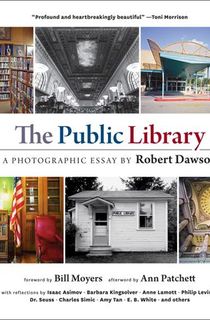
The Public Library
Readers who also happen to be travelers can consult The Public Library: A Photographic Essay as a reliable guide to the greatest public libraries in America, all open to visitors. Photographer Robert Dawson made such a grand pilgrimage, venturing across the States with his camera to shoot photos of hundreds of well-frequented libraries that face the threat of closure due to lack of government support and funding. His collection of photos are an active act of preservation as well as reverence, and Dawson’s aim is to remind readers through his professionally rendered images of both the aesthetic and social value of libraries to communities.
On the literary side, this book also includes thoughtful prose on the topic of libraries by an impressive array of American authors and thinkers such as Bill Moyers, Ann Patchett, Anne Lamott, Amy Tan, and Barbara Kingsolver. There is plenty of variety for both visual and lettered tastes.
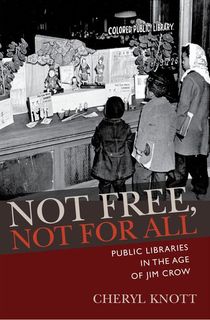
Not Free, Not for All
"As the twenty-first century demands new literacies and critical skills... barriers do not disappear. They merely shift with the times."
It’s a truth that must be faced: in past eras, libraries were aggressively gatekept and Black Americans were barred from accessing their resources. Critical race theorist Cheryl Knott presents a thorough study of the history of American public libraries and their racist practices of denying their Black citizens entry. Or, if they were just a little more lenient, focusing them to maneuver through separate entrances and accept books and materials of lower quality.
Knott also chronicles the rise of African American libraries and how this countermovement redefined the archivism of Black history and contributions to literature. The objective is to answer the following questions: where did the concept of a “free library” in the supposed Land of the Free get derailed, and how did various social and political campaigns reclaim it?
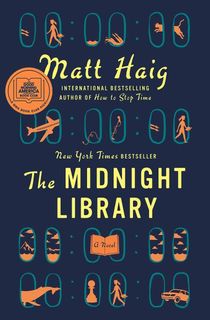
The Midnight Library
“Between life and death there is a library, and within that library, the shelves go on forever. Every book provides a chance to try another life you could have lived. To see how things would be if you had made other choices… Would you have done anything different, if you had the chance to undo your regrets?”
English author and journalist Matt Haig’s enchanting fantasy novel is an exploration of what it would be like if a library offered more options other than just what to read in the evening. His protagonist Nora Seed, a depressed and unsatisfied woman at a crossroads in her life, finds herself inside of a magical library where the tomes offer her multiple journeys into her many possible lives. Each book is a different choice she might have made, and she’s given the extraordinary ability to read and study the consequences of each and every choice.
Like any reader, what she takes in allows her to grow emotionally and psychologically, and all the while, the midnight library keeps her safe and secure through the process. The Midnight Library, after its publication in 2020, proved to be such a smash hit with literary England that it was adapted into a ten-episode series for BBC Radio 4 in the same year as its release.
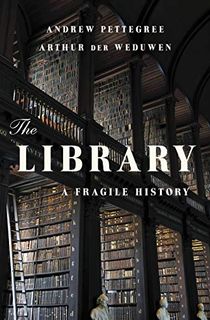
The Library: A Fragile History
“Uncomfortable truth of libraries throughout the ages: no society has ever been satisfied with the collections inherited from previous generations. What we will frequently see in this book is not so much the apparently wanton destruction of beautiful artefacts so lamented by previous studies of library history, but neglect and redundancy, as books and collections that represented the values and interests of one generation fail to speak to the one that follows.”
What really happened to the doomed Library of Alexandria, one of the greatest disasters in the history of libraries? Who greedily hoarded the most valuable manuscripts in the world? Who had access to libraries in the past and who didn’t? How much money did ancient governments invest in their libraries, and how much (or how little) money are governments investing now?
Scholars Andrew Pettegree and Arthur der Weduwen tag-team to answer every one of these imperative questions and more in their precise examination of libraries as a universal, time-challenged project. The product of their meticulous research is more than just dates and facts. They also dive into the complicated psychologies of generations of bookworms who dedicated their lives to collecting manuscripts, maintaining collections, and reading until the end of their days.
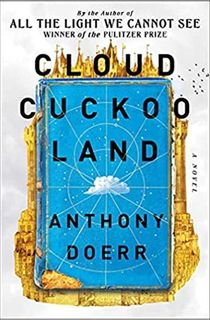
Cloud Cuckoo Land
“But books, like people, die. They die in fires or floods or in the mouths of worms or at the whims of tyrants. If they are not safeguarded, they go out of the world. And when a book goes out of the world, the memory dies a second death.”
Here’s an experimental novel to appeal to all tastes. Part historical fiction, part fantasy, and part science fiction, American author Anthony Doerr’s Cloud Cuckoo Land is a bizarre but enthralling time-traveling adventure. In fifteenth-century Constantinople, local bookworm Anna uncovers a rare copy of the story of Aethon, a dreamy boy who dreams of transforming into a bird so he can take off into the skies and discover a new mythological land.
Anna’s obsessive fascination with Aethon weaves into two future time periods where fellow readers share her intrigue. Zeno, in the modern-day world, wants to put on a play about Aethon. Konstance, who resides on an interstellar spaceship in the future, is transcribing her own version of the tale. This novel is a tribute to how stories unite generations, and how books transcend eras no matter what social and technological developments there are.
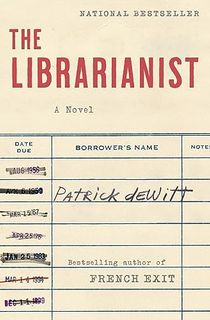
The Librarianist: A Novel
“Why read at all? Why does anyone do it in the first place? Why do I? There is the element of escape, which is real enough—that’s a real-enough comfort. But also we read as a way to come to grips with the randomness of our being alive. To read a book by an observant, sympathetic mind is to see the human landscape in all its odd detail, and the reader says to him or herself, Yes, that’s how it is, only I didn’t know it to describe it.”
Canadian novelist Patrick deWitt has successfully constructed a novel as sturdy and welcoming as a regular library. His protagonist, a retired librarian named Bob Comet, lives the lifestyle of a monk, content in a solitary existence of books and routines. His home is a replica of his former workplace, a perfect library where he finds peace. This uneventful state of being dramatically changes after a chance encounter with an old woman in distress.
When Comet escorts her safely home to her senior center, he’s quickly roped into a world populated by colorful friends who bring him companionship, fulfillment, and the strength to finally confront his own troubled past. This book effectively serves as a character study of a chronically introverted bookworm being reintroduced to a social life and understanding himself more in the process. Of course, no one ever asks him to give up his books. Quite the contrary, actually.


